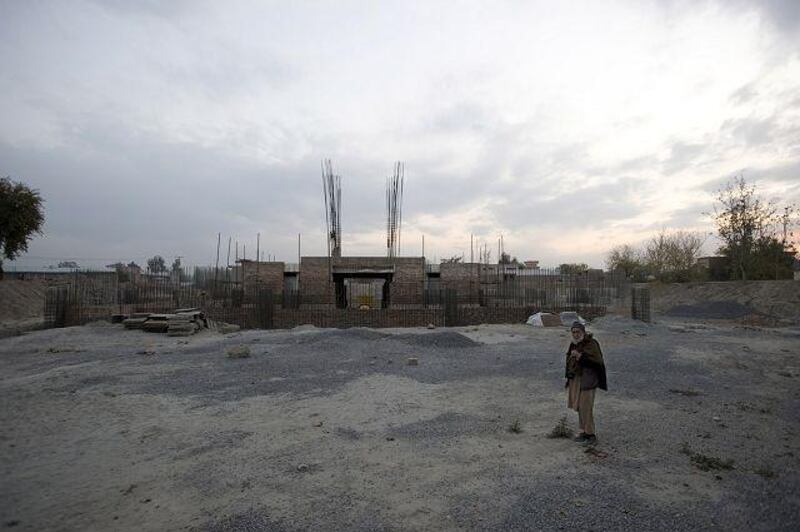JALALABAD // Two sets of the same people straddle the Afghanistan-Pakistan border. Their division has been a source of unrest and acrimony for decades. Now with violence across the frontier threatening to plunge both countries into turmoil, some of those in the region see unification as the only way forwards.
"We think if we solve this problem we will have a permanent peace in all of Asia," said Sher Alam Amlawal, an author and self-proclaimed "Afghan nationalist". The border was established in 1893 to create a buffer zone between British Colonial India and Afghanistan. Known as the Durand Line, it split Pashtun communities and artificially created an area that is now described as the most dangerous place in the world.
Although the government in Kabul does not accept the boundary, Islamabad does, and calls for it to be redrawn have always been rejected. But here in the eastern Afghan city of Jalalabad, there remains a strong sense that the issue will have to be seriously considered sooner or later if the violence is to end. "When the British split Afghanistan they did not split Pashtuns, they split Afghans. We have the same history and the same land and we are all Afghans," said Mr Amlawal.
While the US and Nato frequently complain that insurgents are allowed to easily cross back and forth from Pakistan, they are talking about a frontier that has really existed in name only. Families live on both sides of the line and even today Afghans often continue to travel through border posts without visas. Jalalabad lies just a short drive from Peshawar, in Pakistan, where the Taliban have staged frequent attacks in recent weeks. The flow of human traffic between the two cities is constant and this is a key trading route for the two nations.
Abdul Latif Mal Shinwari is a member of the Afghan Social Democratic Party and he also believes that the eventual removal of the border will help bring real peace to the region. "The people who live on the Pakistan side and the Afghanistan side are the same. They are Pashtuns. They have the same culture, same values and same religion, but they were just separated by force. I believe and our party believes that we will give this right to the people who live on the Pakistan side of the Durand Line. They can choose if they want to be with us - it will be a kind of referendum," he said.
Those in Jalalabad who support the redrawing of the boundary want any new border to eat deep into what is currently neighbouring territory, taking the North West Frontier Province and Balochistan province. Mr Shinwari and even went as far as to claim that Pakistan should be divided up between Afghanistan and India. Although the political unrest within the border areas is now associated with violence, that has not always been the case.
Khan Abdul Ghaffar Khan led a mass movement for Pashtun civil rights during the British colonial era. Described as the "frontier Gandhi", his pacifism garnered widespread support at the time and inevitably provoked an official backlash. He spent large parts of his life in prison, including under Pakistani rule. He is buried in Jalalabad, where his tomb has not yet been completed, even though he died in 1988.
Haji Sayed Ismail Jalali, who heads the Afghanistan office of the Baacha Khan Trust, said Mr Khan had struggled "for the rights of all humans". "He called people on both sides of the border Afghans. Our original name is Afghans. If you see the ID cards of Pakistani Pashtuns they will write 'Afghan' for their tribe," he said. "We are brothers but we have a black line by the name of Durand between us."
Since Barack Obama took office earlier this year, the US has coined the phrase 'Af-Pak' to signify the need for a strategy that addresses the region as a whole, rather than just events on the ground in Afghanistan. However, the border itself continues to be seen only as a security concern, rather than a geopolitical issue that must be resolved. Speaking at a think-tank meeting in Washington, Richard Holbrooke, America's special representative to Afghanistan and Pakistan, recently said the Durand Line could not be discussed now.
For the people who favour Pashtun unification, the current events are the latest chapter in a long history of outside interference in the region. They say that just as Khan once stood up to the British Empire, he would also have struggled against the US and its allies. "He was a very big fighter for freedom," said Mohammed Zahir, caretaker of the tomb in Jalalabad. "He started non-violent resistance against a superpower, he was a great Afghan and a great Pashtun."
@Email:csands@thenational.ae





